Updates on travels, adventures and news from Jess McGlothlin Media.
It was a great pleasure to sit down with @t.nolan.imagery and the team behind the B&H Photo Podcast — @jrockfoto and @allanweitz — to talk fly fishing, travel, and outdoor photography. I’ve shopped B&H since the beginning of my photographer career, and we had a very fun time recording this podcast! Toby is on top of his game, and we had a fun conversation with the B&H team about our strange little fly-fishing industry, the gear we use in the field, and more. Now we just have to get the same group back together and hit the water somewhere!
Click here to give the podcast a listen, and let me know what other topics you wish we’d touched on.
Thanksgiving 2020. Well, here we are. The holiday hits home a little harder this year. 2020 has been a lot of things, but perhaps above all, it’s been a lesson. Suddenly the little, day-to-day things we took for granted in years past have been lost. Or taken away. The ability to do one’s job, for many, suddenly vanished. My mom works in a retail store; when the country shut down in the spring, she suddenly found herself out of work for months. Other family members lost jobs. I lost the ability to do my job… without international travel, being a traveling photographer and writer suddenly looks a lot more grim.
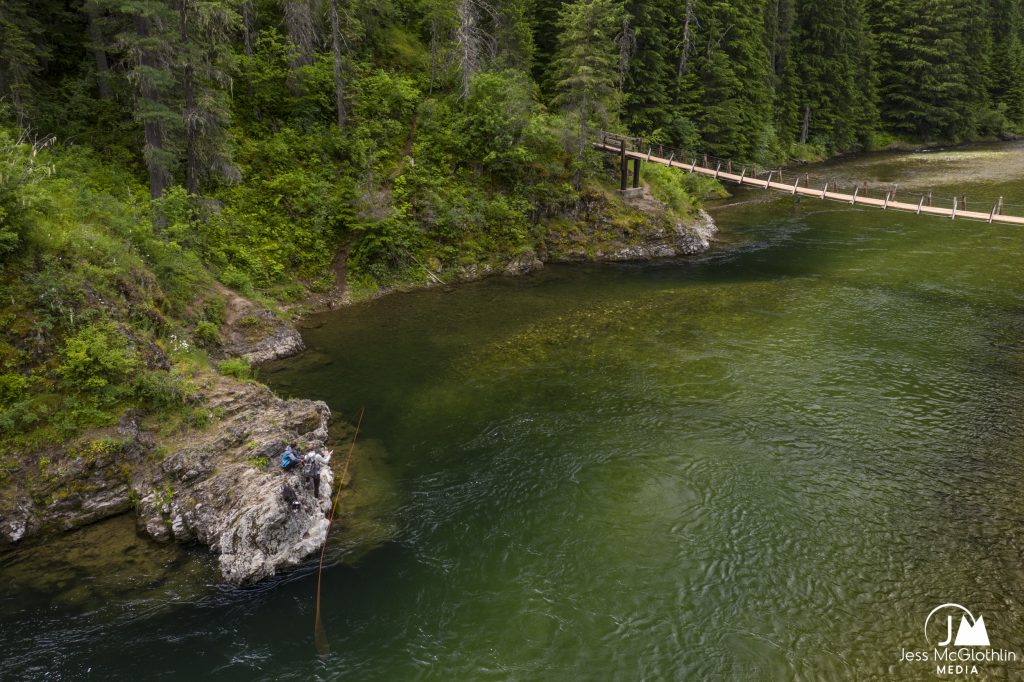
I had been on a remote shoot in Chilean Patagonia in late February and early March, away from a cell signal and wifi. Flying back to the States through Santiago, I remember watching a new broadcast about the novel coronavirus in the United States. People were just starting to worry. A month and a half prior, I had been wandering around New York City’s Chinatown, looking for a particular restaurant and taking in all the Chinese New Year decorations, not thinking twice about being jammed into subways on streets with thousands of people.
Never would I have imagined that now, nine months later, we’d all still be living in our own little bubbles, the world still shuttered.
But, you know, here we are.
I live by the airport here in Missoula, and since March I’ve been listening to the planes fly overhead (for a while, it was just a few a day), and have found myself absurdly grateful each time I heard the roar of engines overhead. It meant someone was going somewhere.
We adapt… it’s what we do.
And life moves on. There have been some really shit days and some really good days. Here are a few things I find myself thankful for this season:
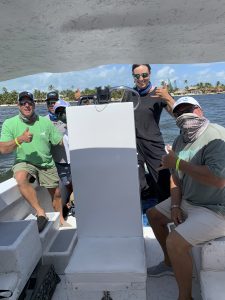
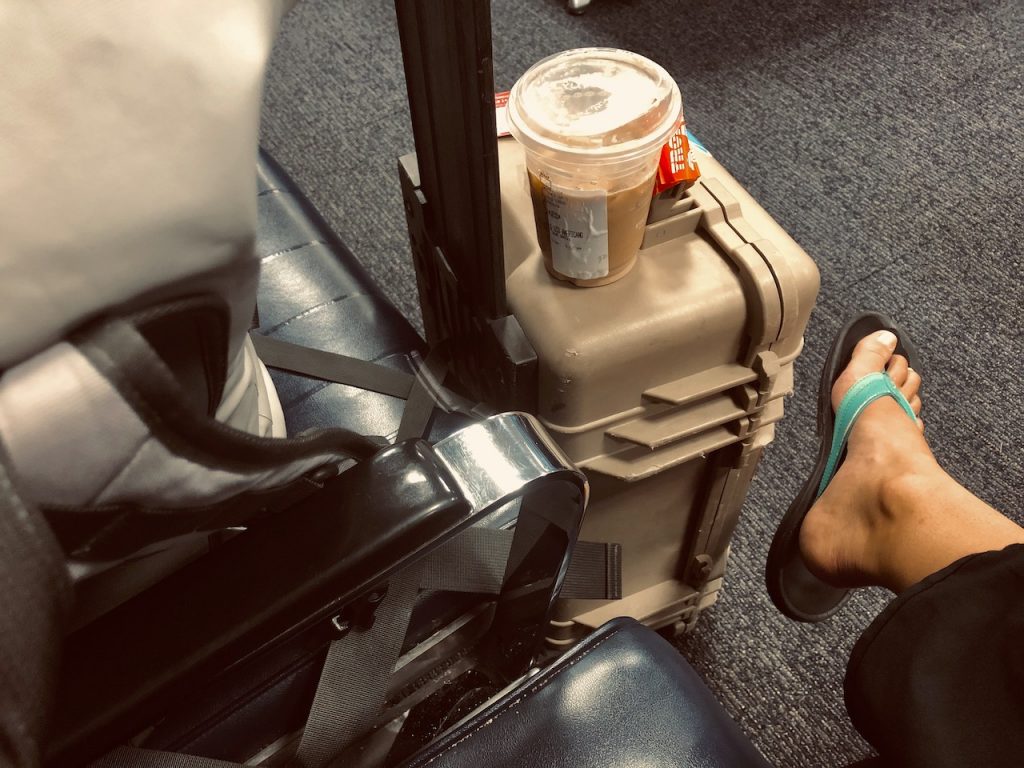
And thanks to all of you, who read gibberish like this that I write when I’ve had too many cups of coffee and my thought are just a little too loud. Here’s to whatever 2021 brings—at least we know it won’t be boring—and to finishing out 2020 with reminders of what’s really important in our lives.
So for my American friends, take a deep breath today and inventory the things that have made a difference this year. For my international friends, go ahead and do the same.
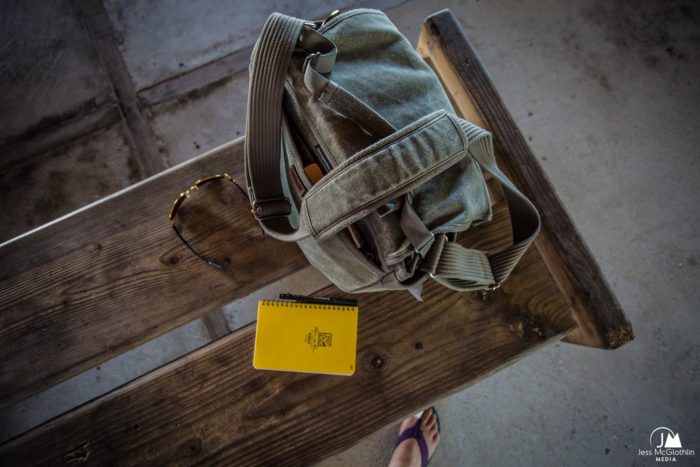
(Author’s note: This post was originally published August 14, 2017. In the spirit of continued queries and the turn to 2020, I’ve edited slightly and posted again.)
I get at least two emails or social media messages a week. “Hey, what you’re doing looks like a lot of fun. I’m A) about to graduate or B) looking to leave my corporate job and want to travel the world to shoot photographs of people fishing. How can I get your job?”
It’s always flattering to have the public view one as an expert in, well… anything. And I’m more than happy to share the path that lead to me to where I am now. It’s an ever-evolving proposition, and I’m sure as hell learning something new every day.
Every conversation, be it a phone call, in-person, or via email, however, beings with this simple warning: it’s not as glamorous as it looks. In between the monster fish, beautiful locations and far-flung locales, there’s plenty of sleeping on grimy airport floors, getting tested for tropical diseases and eating whatever food might be on hand (readily identifiable or not… when in Rome, and all that.).
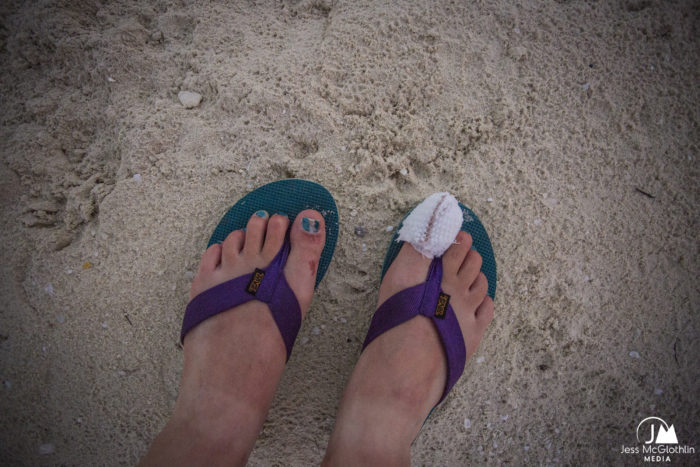
There are also the 3AM work sessions, glazed eyes from photo editing days and exhausted writing stints where I stare vacantly at a blank sheet of paper until I just decide to start writing gibberish. Stability is a forgotten thing — I keep a “go bag” packed for last-minute trips (see some of my favorite gear here), and keeping a steady relationship is challenging to say the least. I pay rent even though I’m gone anywhere from four to six months of the year.
So, yes, while it may look glamorous and exciting — and it can be both, though glamorous isn’t often the adjective I’d use — realize there’s a cost to those good moments.
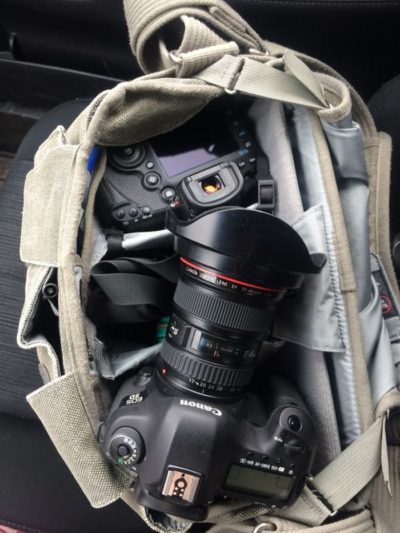
Still thinking about becoming an outdoor / fishing photographer or writer? Read on; here are five tips to help you on your way.
1) Most important of all: be willing to put the work in. In my early years, I worked three jobs while teaching myself how to shoot. There’s no way to gain an instant skill set in this world… to be a professional, it takes long hours in the field, plenty of research and learning on your own and a willingness to set aside other aspects of your life in order to make it work.
Put the ego aside and realize you’ve got a lot to learn. We all do.
2) Develop your own style. The end goal is for someone to be flipping through the latest fishing magazine, lay eyes on one of your images and immediately know who shot it. A distinct shooting style sets you apart from your peers — and it’s something editors and commercial clients will look for. I’ve gotten some jobs because of my style, and had clients turn me down for others for the same reason. Sometimes it’s a good fit, other times it’s not, and that’s okay.
Your own style is a personal decision; don’t just copy how someone else shoots. Experiment, see what feels right, and make it your own.
3) Learn other aspects of the industry. This is especially true if you want to become fly-fishing-specific media. You need to know what life on the other side of the lens is like. Some of the best moves I made early on in my career were working in lodges internationally and fly shops around the U.S.. This helped me understand the challenges on the other side of the lens, and also helped establish credibility. Now, I can arrive at a lodge for a shoot and honestly say, “Hey, I’ve been in your shoes. We’re good.” Everyone relaxes.
Also, do yourself a favor and learn how to cast. It’s hard to look like a professional in the industry — in any matter — if you can’t fish yourself. The first day out with a new guide on location, we’ll chat about the battle plan and expectations, and then I’ll casually pick up the rod for a little bit. I’m by no means a rock star caster, but I can get it done. When a guide sees that he’s with someone who knows what they’re doing, the day mellows indescribably. Learn to fish; you don’t have to be the best in the world but at least cover your basics. The effort will be respected.
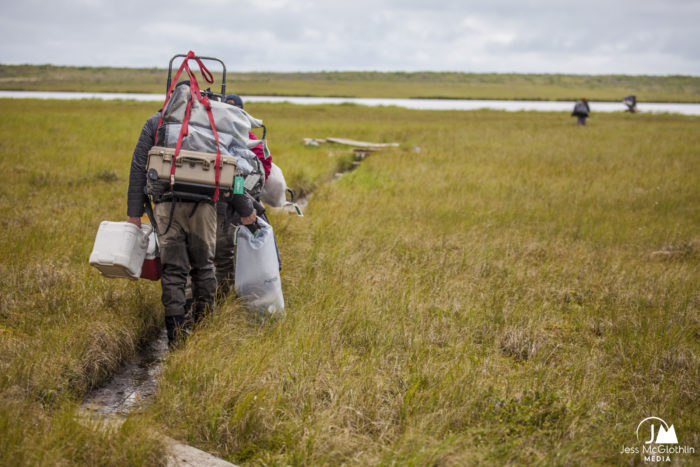
4) Take notes. So, you only want to be a photographer… forget all that writing stuff. Okay. You should still pack a notebook and pen (or a phone with note-taking capabilities). Take notes — names, places, distances, fish habitat, funny phrases, etc. Good, complete captions are key — editors will appreciate if you have the correct information, and plenty of it.
5) Just shoot. So, you’re not flying halfway around the world to cover an exotic fishery. Grab a friend and head to your neighborhood river. Play with light, play with fish, play with moving your feet and capturing different angles. Just play. Shoot subjects other than just fishing. You’ll be amazed at some of the images that you come away with.
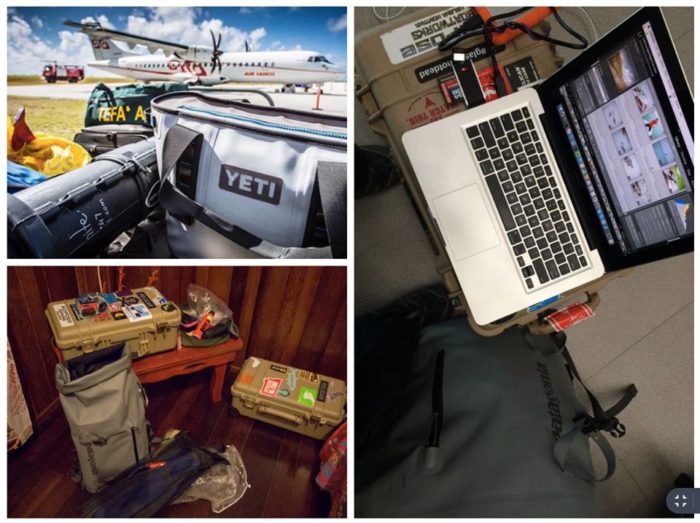
Perhaps the biggest rule of all is to do what feels creatively right. I don’t know how many times I’ve been out shooting and see something spectacular through the lens, then just feel a goofy smile cross my lips. You’ll know when it feels right. And sometimes those shots take a lot of effort — technical set-up, lighting, hiking in long distances, wading deeper than your comfort level, ignoring that pesky little blacktip shark that keeps cruising by, etc. — while other times, it seems as easy as pie.
Pick up your camera, get on your feet and shoot. Learn how to use your camera — get it the hell off auto. Network within the industry. Don’t be afraid to work… it’ll take you far. And, at the end of the day if you decide being a professional is just too much, don’t let it dampen your creativity or your love of fishing. Everyone comes at this lifestyle differently, and that’s the beauty of it.
Want a peek at what happens behind the scenes? While I was on commercial and editorial assignments this past summer in Swedish Lapland, the Swedish Lapland Tourism team (who were rather savvy anglers themselves) shot this video. It’s quite candid — I was too busy focusing on my own assignments to do any kind of scripted… anything — but the team did a fantastic job of it. We filmed most of the audio at 2 or 3AM over the course of several mornings, so here’s a bit of tired honesty for you… and a look at life on location:
I had so much fun recording this podcast for Backcountry Hunters & Anglers with Hal Herring. Hal and I met up one hot afternoon here in Missoula a few weeks ago at the BHA headquarters and, fueled by coffee and good conversation, could have talked for hours.
Actually, we did talk for hours. We could have talked for so many more.
I’m terrible about my own PR; I’d so much rather talk about other people than myself. But Hal did a masterful job of digging into how I got my start, what the early days were like (spoiler: there’s no magic bullet in this industry), and the very unique challenges 2020 has brought for traveling creatives.
Huge thanks to Hal and the BHA team for having me on “Podcast and Blast”!
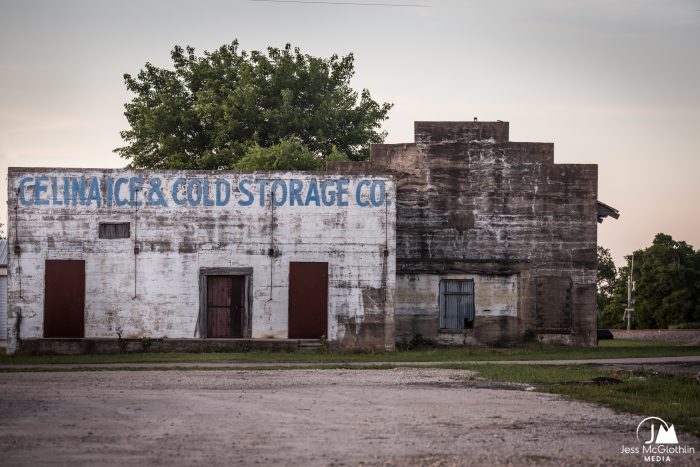 I’d never thought about having a “pivot” section of my business plan for a global pandemic. I never really considered what would happen if I couldn’t leave my home; if I couldn’t get on a plane and get places. Never planned for what would happen when the local market ran out of meat, or we couldn’t be around other human beings.
I’d never thought about having a “pivot” section of my business plan for a global pandemic. I never really considered what would happen if I couldn’t leave my home; if I couldn’t get on a plane and get places. Never planned for what would happen when the local market ran out of meat, or we couldn’t be around other human beings.
The business plan, the one I drew up eleven years ago with big aspirations, didn’t really account for what would happen when people became afraid of other people because of something we couldn’t see.
As I kid, I’d written a handful of fiction stories that touched on some of the same themes; words on paper for my reading only. About people adapting when the world changes rapidly and dramatically; surviving when the “ordinary” suddenly doesn’t exist. Can’t say I really expected to live something similar, and yet in a way so wholly unanticipated.
But here we are, in the something-month of a global pandemic, and the old paradigm—the one we’d all built our lives around—is gone. The world shifted dramatically within the space of weeks. New lines were drawn in the sand, new sides were taken. Fear became a fact of daily life for a while; mostly because true facts were scarce and, when they were available, they were buried. The world’s changed, and there’s no rule book.
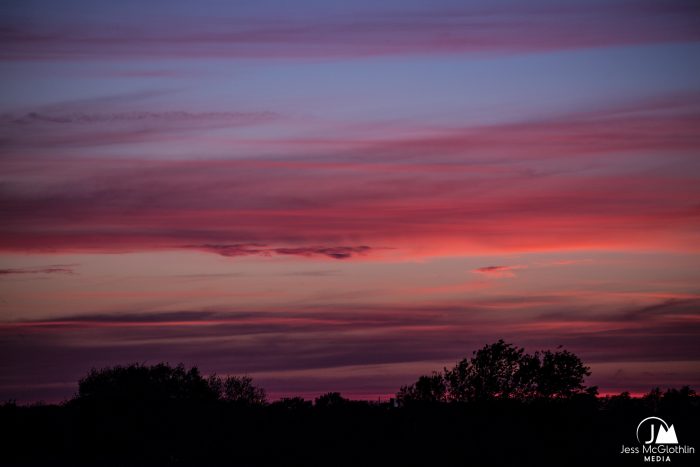
My business, like so many others, is pivoting. Adapting. Changing. I’ll still be traveling as soon as it’s possible; camera in hand and notebook in my pocket. The why isn’t going to change. The how might shift for a while.
The 2020 work schedule was thrown out the window in March, when I got off the plane after a project in Chile, where I’d been wholly unconnected, camping in the Patagonian wilderness and far from the news cycle, and saw a year’s worth of trips, clients, and projects vanish in the space of a week.
It wasn’t a great week.
But we adapt. It’s what we do.
One of my favorite quotes, jotted into a notebook years ago (from a book long since forgotten), is this:
“Sometimes things go to hell – it’s a natural order of things, they simply can’t stay simple. The difference between a pirate and a sad slob of a man who thought he could be one is the nerve and ability to unfuck things when needed.
Or fucking them up, whatever the situation requires.”
And so, piece by piece, I’ve been working on unfucking my business world.
I’ve spent a lot more time writing, confined to my 550-square-foot apartment here in Missoula, working with a few clients I’m very grateful for. I’ve spent more time on video call these past three months than I’ve ever wanted to. My “desk” (in reality a Costco plastic folding table and a balance ball) offers those joining me on calls a scenic view of my camera gear shelving unit and, on occasion, a fly tying vise.
I’ve traveled within the United States to document current events, and caught weird little moment of history through the lens of a beaten camera. Empty airports and empty streets.
I was the only person waiting on the curb at a DFW Airport terminal in April, a camera in hand and a press pass in my pocket. It felt a bit like the apocalypse, but with a sunny wind in my hair and the smell of Texas instead of whatever I’d imagined as a child.
I spent long hours walking the streets of Missoula, seeing people cross the road to avoid waking next to me; worried to pass another human being on the sidewalk. I counted stuffed bears in windows, and soaked in children’s chalk scrawls on the sidewalk. I listened to countless hours of music while my brain worked.
We had an earthquake here in Missoula, on week six or eight or something (they run together now), and I remember watching a picture come off the wall, and watching with an odd sort of detachment. Thinking, “Okay, what next?”
I’m grateful to live near the tiny little airport here in Missoula. Early on I’d lay awake at night, listening for the planes that were due to land. I memorized the flight schedule—at one point less than four flights a day—listening for each incoming plane, and was grateful every time I heard the engines in the air. It meant something was still happening; someone was still flying somewhere. Now, the wildland firefighting planes have joined the other air traffic and I hear more planes overhead. Any time a firebomber with an orange tail crosses overhead I smile; remembering the old World War II firebombers than flew over northwestern Montana when I was a child. These newer planes carry a different sound, but they still bring back memories of a time that, these days, seems very long ago.
We adapt, don’t we? I’m exceedingly grateful to the clients who have shifted to writing work this spring instead of my normal writing / photography combination—you’ve kept me going. And I’ve never been more grateful for the blank page; one day last week I drank a French Press full of coffee and scrawled more than 14,000 words on the page before coming up for air. Nothing that will be published; nothing that will see the light of day. But words on paper, which means they’re out of my head. And that, these days, is a good thing.
One of these days we’ll be traveling again. It’s going to be each person’s decision what travel will look like for them. I’m ready.
I’m not sure what the future will look like, but I know I’ll still be here, camera in hand and notebook in my pocket, looking for stories.
I had fun chatting with Greg at the Fly Fishing Insider Podcast a few weeks ago. We chatted about travel, gear, how to get started in the industry, what our industry might look like post-COVID-19, and more. The episode just came out; if you’re looking to burn a few minutes, give it a listen.
Definitely ready to get back in the field again. Like many of you, my world has changed pretty drastically these past few weeks, and Q2 and even Q3 plans and photo shoots have been canceled or postponed. For small businesses, it’s crushing. But this will pass, like most things, and I’m hopeful we’ll all bounce back in time.
Quick note, folks: if you’ve had to change travel plans due to recent events, please consider deferring your lodge stay or guide trip instead of cancelling. We all know the travel industry is struggling right now, but this virus will pass and one day we’ll be traveling again. Support those people who help make travel moments great, and book for the future.
Okay, PSA done.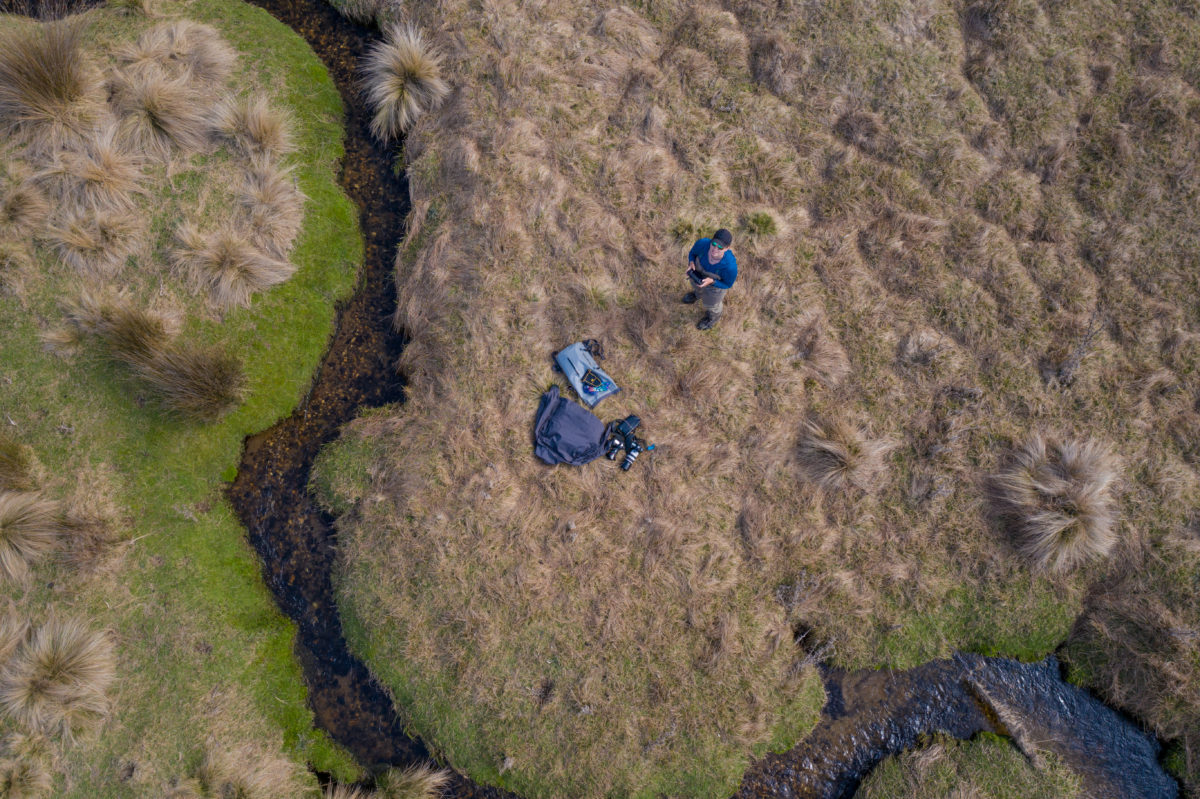
Image: Tasmania, October 2019.